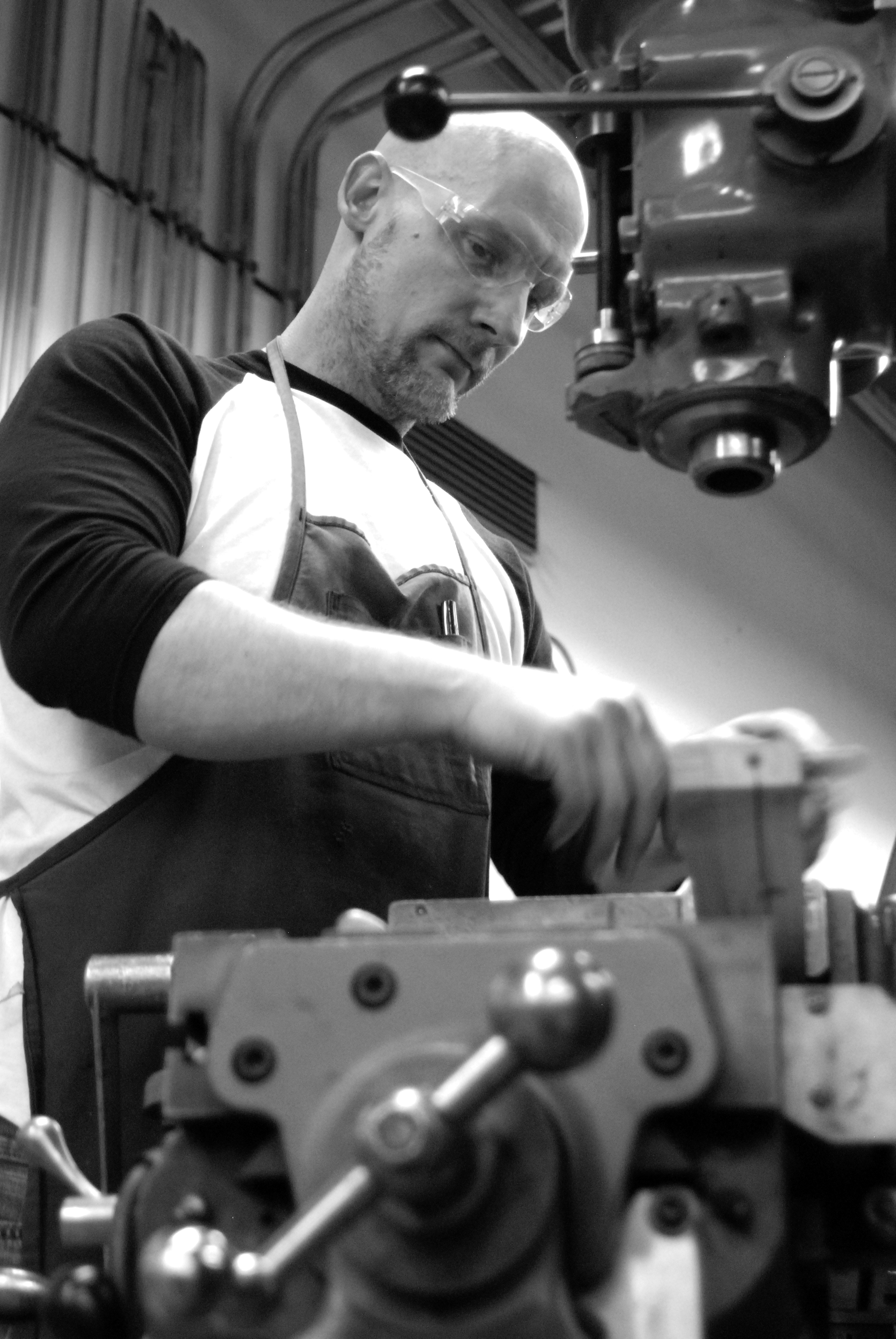This content was published: September 16, 2022. Phone numbers, email addresses, and other information may have changed.
Learning the Basics of Metalworking: Smithing Your Own Furniture
PCC Community Ed
 There is great satisfaction in making your custom furniture. One of the ways you can turn a skill for woodworking into a more versatile pastime is to learn some metalworking as well. With metalwork, you can make your metal furniture and custom metal hinges and other details for wooden furniture.
There is great satisfaction in making your custom furniture. One of the ways you can turn a skill for woodworking into a more versatile pastime is to learn some metalworking as well. With metalwork, you can make your metal furniture and custom metal hinges and other details for wooden furniture.
Getting to know the world of metalworking is exciting and can connect you to deep historical roots. However, when you start to explore how to learn metalworking, you’re likely to realize just how expensive much of the necessary equipment is. It’s not a hobby where you buy all the items for your home as a newbie. Instead, taking a course in metalworking can do a lot to help you. It teaches you the metalworking basics and allows you to gauge your interest over a sustained effort before investing in the materials you’d need to grow your hobby.
History of Metalworking
Metal is so key to human history that we named entire periods of history after it, like the Bronze Age and Iron Age. That occurred as humans started noticing how creating alloys between different metals allowed them to do more with metal and create stronger, more beautiful, or otherwise useful metal projects. Metalworking, or heat to soften the metal and shape it into the desired object, has allowed people to make everything from gates to weapons and everything in between.
There is a brutal physicality to metalworking and finesse that requires the lightest touch. If you want a hobby that is part workout, part precision handiwork, and absolutely the best story you’ll tell at your next party, try a metalworking class.
What Do You Do in a Metalworking Class?
A metalworking basics class will first include an introduction to metalworking tools and the safety needed to use them well. You’ll learn what a forge is and how the Portland Community College metalworking forge is heated up to the necessary level and keeps the warmth needed to heat and shape metal effectively. As you learn the physical tasks of heating and shaping the metal, you’ll learn techniques to get different shapes fast enough before the metal cools. You’ll learn about the chemical structure of various metals and what makes some of them easier or harder to work in the forge.
Some metalworking classes will focus on welding or how to join pieces of metal using heat, pressure, and hammering. Because welded metal can be some of the strongest bonds, you regularly conduct it alongside metal shaping techniques.
Uses for a Class in Metalworking Basics
While there is an inherent satisfaction in learning a new skill well, and many people may find the hammer and bellows components of metalwork soothing or engaging after a long day at an office job, there are plenty of practical uses for your metalworking knowledge. Think about these potential projects and outcomes:
You can begin with simple projects like making your bookends or decorative garden stakes. These simple projects allow you to practice without using a lot of material for each project, giving you a sense of completion and excitement after each one.
- Working with metal can allow you to make your metal hardware for furniture, such as cabinet knobs or drawer pulls in a kitchen. It can be a way to put your spin on the look you want for your home.
- As you scale up, garden benches, tables, and storage racks can be simple but sturdy projects that are sure to be a notable addition to a home.
- Can’t find the custom tool rack, fire pit, or garden gate that fits your vision? Make your projects part decorative, part practical and see the fruits of your labor every day. Creating your design helps ensure you’ve mastered all the needed skills while flexing your inventiveness.
- For those who like cars and are pursuing welding in addition to metalworking basics, you can use your new skills to create the basic frame for a go-kart or other custom vehicle. These projects are much more complex than some others mentioned, but adding this skill can make you a great team member that wants to design a go-kart or other vehicle.
- If your passion grows, you can dovetail metalworking basics into pursuing a more professional metal-related job. You can leverage it in jobs like welding, CNC machine operator, boilermaker, or sheet metal worker.
Try a Metalworking Class Today!
Portland Community College offers a wide variety of courses that help people develop both careers and hobbies. Craftsmanship starts with learning a new skill and never ends since you can constantly learn new techniques as you continue to thrive as a metal craftsperson. No matter how you use your learning, check out the PCC schedule today to find your next affordable, flexible, convenient class experience.
